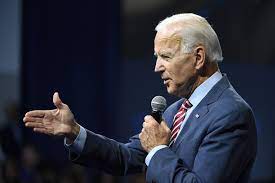Amid indications of American fatigue with supplying weaponry to Ukraine after two years of conflict, President Joe Biden is set to convene with fellow world leaders to explore fresh avenues for providing aid to the country as it contends with Russia’s ongoing invasion.
Scheduled to participate in a three-day summit in Apulia, Italy, alongside other members of the Group of Seven (G7), an alliance of the world’s leading industrialized nations, Biden aims to discuss strategies to utilize approximately $300 billion in frozen Russian assets to bolster Ukraine’s defense efforts, as outlined by the White House.
While there’s general consensus among Biden and his counterparts regarding the utility of accessing Russian assets to support Ukraine, disagreements persist over the optimal approach, according to an individual familiar with U.S. preparations for the summit.
Reportedly, the Biden administration initially proposed utilizing both principal and interest from Russia’s assets to finance the conflict, while European nations advocated for solely utilizing the interest. Given Ukraine’s urgent need for additional arms, the Biden administration is reportedly open to compromise and willing to endorse the preference of European leaders.
Among the potential options being explored is for the G7 nations, which include France, Canada, Japan, the United Kingdom, Italy, and Germany, to provide Ukraine with an initial sum of around $50 billion, to be subsequently recouped through interest income over the ensuing decade.
During his recent visit to France commemorating the 80th anniversary of D-Day, Biden hinted at progress in reaching an agreement, stating that discussions with French President Emmanuel Macron regarding accessing frozen Russian assets had occurred and yielded positive results, albeit without offering specifics.
Throughout his five-day sojourn in France, Biden dedicated considerable effort to advocating for increased support for Ukraine. Drawing parallels between the collaborative efforts of the U.S. and its allies during World War II and the present need to defend Ukraine against Russian aggression, Biden emphasized the importance of democratic nations standing together to thwart Russian President Vladimir Putin’s expansionist ambitions.
Warning of the potential domino effect of a successful Russian incursion into Ukraine, Biden underscored the broader implications, suggesting that such an outcome could embolden Putin to target Poland and other NATO members, potentially igniting a broader and more devastating conflict.
In Paris, Biden met with Ukrainian President Volodymyr Zelenskyy and announced a $225 million arms package, inclusive of air defense interceptors and artillery ammunition. Further engagements with Zelenskyy are anticipated during the G7 summit.
Jake Sullivan, the White House’s national security adviser, emphasized the importance of mobilizing resources on a significant scale to equip Ukraine adequately for the conflict.
Despite Biden’s persistent efforts to rally support for Ukraine among the American populace, public opinion regarding the conflict appears to be waning, with polling indicating a decline in support for U.S. intervention. The share of U.S. adults who perceive insufficient assistance to Ukraine dropped by nearly 20 points over the past two years, while confidence in Biden’s assertion of Russia’s regional threat decreased.
Simultaneously, Biden faces pressure to intensify efforts to aid Ukraine, with calls from figures like Senator Lindsey Graham to provide direct military assistance, including training Ukrainian forces and authorizing strikes within Russia.
Echoing sentiments of urgency, former Obama administration official Brett Bruen advocated for deploying U.S. military trainers to Ukraine, emphasizing the strategic importance of such support.
While the conflict in Ukraine is expected to dominate discussions, the G7 leaders will also address challenges posed by artificial intelligence and China’s economic practices. Pope Francis is set to make a guest appearance at the summit.
The back-to-back European visits may prove physically demanding for Biden, particularly given his age and ongoing family concerns. Amidst a family crisis involving his son Hunter Biden’s recent conviction on federal charges, Biden’s ability to maintain focus during the summit remains paramount, according to those familiar with his temperament.
Despite the distractions, observers like former Senator William Cohen anticipate Biden’s resilience and focus during the summit, emphasizing the need to compartmentalize personal matters.
As the summit unfolds, attention will not only be on the substantive discussions but also on Biden’s demeanor and leadership, with European leaders evaluating his ability to navigate complex diplomatic challenges amid domestic and personal pressures.

